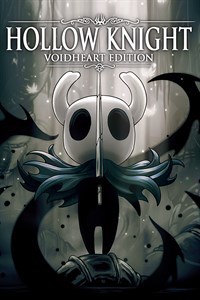 I still don’t understand why games that are roguelike are named after the original game of that style, Rogue, while games that are Metroid-like (ie, exploration-platformers with boss fights and power-ups) are named after more than a decade later when Castlevania did the same thing, and someone decided they were equivalent and everyone else agreed. It’s just not right.
I still don’t understand why games that are roguelike are named after the original game of that style, Rogue, while games that are Metroid-like (ie, exploration-platformers with boss fights and power-ups) are named after more than a decade later when Castlevania did the same thing, and someone decided they were equivalent and everyone else agreed. It’s just not right.
All of that to say, Hollow Knight is a Metroidvania in which you play a silent[1] protagonist come to the dying city of Dirtmouth above the dead-but-treasured-filled kingdom of Hallownest, and also everyone is bugs. And that’s it, that’s the whole plot as presented. Everything else you learn on the way. Questions like “why do I have such a shitty weapon? why are some of the bugs cool and chill and want to sell me things or discuss philosophy, but some of the bugs just run at me to kill me, but some bugs do both? why is this referred to as a platformer when I can barely jump at all?”
There are three important things to know about this game. The first is that, if you are okay with the genre, with having to go back and forth and remember where you left things to do later and explore until you find places you can’t go but trust that you’ll be able to later and until you find fights that you cannot win but trust the same thing about that, if you’re okay with these things: this is a spectacular game. Arguably the best one of its kind ever made.
The second is that it’s incredibly long. I played for 83 hours to get the credits, and there are still a number of things that I know are left undone, not counting that there are probably things I don’t know also.
The third is a corollary to the second. It is 97% melancholy, with only the briefest of divergences from this theme, and those countered by moments of much stronger sadness to still balance out at 100% adjusted melancholies. And there’s nothing wrong with a melancholy game! Most walking sims are, and I play lots of those. But here’s the thing: 83 hours of melancholy is a lot to get through, even for a truly amazing game.
Oh, and also Voidheart Edition is because there were eventually several small expansions, and all of them are included in the Game Pass version. According to the meter, I got 106% completion out of an implied possible 112%. Almost all of what’s left are harder versions of things I’ve already done, which makes it hard to feel like I should practice my ass off to accomplish them. Plus the melancholy.
In the unlikely event that I do more, and that the more I’ve done changes my impressions significantly, I’ll report back.
[1] I mean, yes, most video game protagonists outside of dialogue-tree RPGs and shooter cutscenes are silent. But the other characters in this game make a point of noticing your silence.
I still don’t understand why games that are roguelike are named after the original game of that style, Rogue, while games that are Metroid-like (ie, exploration-platformers with boss fights and power-ups) are named after more than a decade later when Castlevania did the same thing, and someone decided they were equivalent and everyone else agreed. It’s just not right.
It’s the politics (fsvo) of video games. Rogue adherents were very focused and united and even created a Proper Definition of a Roguelike, while Metroid didn’t really capitalize enough on its success early and it wasn’t until the GBA era of Castlevania that someone said “well, there’s proper Castlevania, then there’s those Metroid-vanias” and everybody went “ooh, Metroidvania!”
(See also, “doom clone” versus “FPS” and the “soulslike” discussion.)